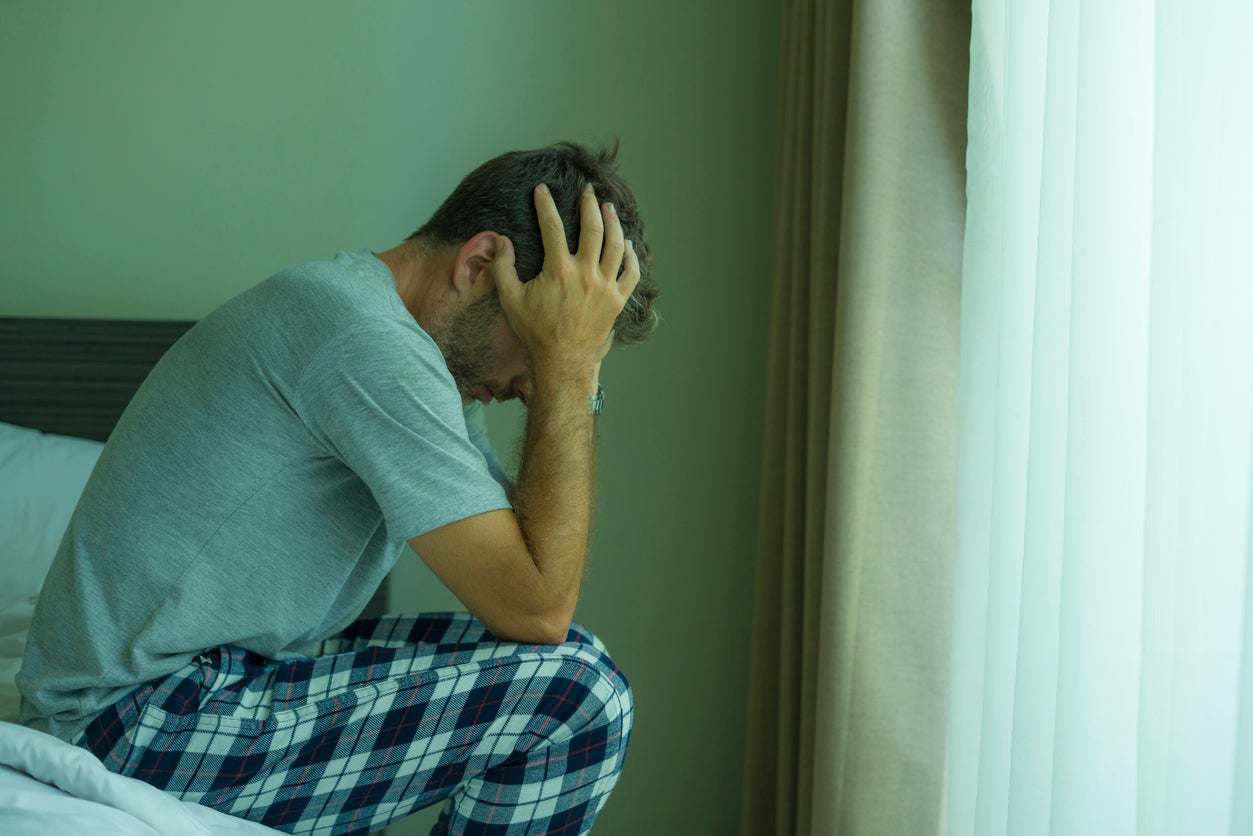We can either pay the price for stricter coronavirus restrictions now - or later with more mental suffering
We need to work with GPs, hospitals and mental health services to make sure everyone has access to the right support


Your support helps us to tell the story
From reproductive rights to climate change to Big Tech, The Independent is on the ground when the story is developing. Whether it's investigating the financials of Elon Musk's pro-Trump PAC or producing our latest documentary, 'The A Word', which shines a light on the American women fighting for reproductive rights, we know how important it is to parse out the facts from the messaging.
At such a critical moment in US history, we need reporters on the ground. Your donation allows us to keep sending journalists to speak to both sides of the story.
The Independent is trusted by Americans across the entire political spectrum. And unlike many other quality news outlets, we choose not to lock Americans out of our reporting and analysis with paywalls. We believe quality journalism should be available to everyone, paid for by those who can afford it.
Your support makes all the difference.As the nation argues whether regional lockdowns are justified here’s something to consider - there will be no escape from the mental health ramifications either way.
Here’s why - your mind is part of your body and Covid-19 can be both a physical and mental illness. A great deal has been achieved to highlight the plight of those suffering the mental health effects of lockdown, the result of social isolation and recession.
This is a very real concern, but I worry that this threat is being weaponised by those with other political agendas to argue against tighter restrictions to control the virus.
Life and Covid-19 is more complicated than that. We need urgently to wake up to the very serious mental health consequences for people who get coronavirus and for the families of those who are disabled or killed by this disease.
Stricter measures to control the virus are needed to minimise Covid-related mental illness as much as possible. At the same time we must do more to mitigate the effects of these controls, with much better support for those who can’t work, ensuring that children can attend school while supporting those who are cut off from social support.
Any serious physical illness can be traumatising, and for many, a spell in intensive care will result in long-term conditions such as anxiety, depression and post-traumatic stress disorder.
But we are learning more and more daily about the potential long-term effects of Covid-19 on mental health. A recent Italian study found that more than half (56 per cent) of patients hospitalised by Covid had at least one mental health condition a month after being discharged.
The longer patients had spent in hospital, the more likely they were to develop mental illness. In June, the CoroNerve study revealed stroke and psychosis among the after-effects for 153 patients who had succumbed to the virus. We also know that the brain is one of the major organs that can be permanently damaged by Covid-19, though thankfully this is rare.
More common and even more worrying are the widespread effects including fatigue, brain fog, confusion and insomnia. A large UK study found that almost three quarters of Covid patients were reporting these kinds of symptoms three months after leaving hospital.
And we must not forget the mental health price of Covid-19 for the hundreds of thousands of people grieving for those who have died. Grief is normal – part of being human, but for some grief or trauma will develop into something more serious, bringing a legacy of chronic and serious mental illness for years to come.
Add to all that, the consequences that an NHS overwhelmed by another Covid surge will have on services for existing and new mental health patients, including healthcare staff experiencing mental health problems. The first surge saw mental health patients get sicker because they missed routine appointments, too many went into crisis. Already, patients are being turned away from services because our old fashioned and dilapidated buildings are unsuited to infection control.
The evidence is stacking up and we need to act now to meet the emerging challenge. As well as controlling the virus where we can, we must face up to the fact that coronavirus and the measures taken to control it, will increase mental illness. That, like the deaths that follow Covid-19 infection – is already baked in.
Despite the improvements in mental health services in recent years, we are woefully poorly prepared for the mental health challenges posed by Covid-19. We need to ensure mental health professionals help shape new models of support for those who have had long Covid, and that we are gearing up to meet rising demand by improving care and investing in expanded services.
We need to work together with GPs, hospitals, mental health services, and communities to make sure everyone who has been affected by Covid has access to the right support when they need it.
We cannot overcome Covid with piecemeal solutions. The mental health consequences of the virus and the measures needed to control it must both be addressed by government and health services.
To those who say the price is too high I say this. Pay now, or pay more later, with a cruel rate of interest rate calculated in suffering and wasted lives.
Dr Adrian James is president of the Royal College of Psychiatrists




Join our commenting forum
Join thought-provoking conversations, follow other Independent readers and see their replies
Comments